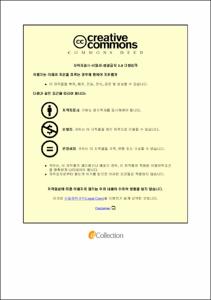Self-Powered Food Assessment System Based on Deep Learning and RF Energy Harvesting
- Alternative Title
- RF 에너지 하베스팅과 딥러닝 기반의 자가 동력 식품 평가 시스템
- Abstract
- In recent years, the demand for food monitoring system development is becoming extremely necessary because of the effects of food safety on human health. However, some conventional methods show several drawbacks such as complexity, high power consumption and expensive. Aiming towards a novel method for food monitoring, in this thesis, the authors proposed a self-power online food monitoring method based on far-field RF energy harvesting and machine learning techniques. The system includes a smart sensor module and an energy harvester escalated inside a seal food container. The energy is harvested from radio frequency at ultra-high frequency band 915MHz transmitted by a 1W radio frequency identification (RFID) reader. To improve the RFEH performance and fit into a compact foot print, a Yagi type structure antenna with three elements was implemented as receiver antenna. Additionally, we presented a new approach for food scanning by observing the increasing gradually of air pressure inside the food package during storage through an air pressure sensor mounted on the designed module. With this approach, the sensor tag is capable of working at ultra-low power, less than 1mW while the other conventional method whose power consumption over 10mW. To verify the feasibility of the proposed solution, a set of demonstration was conducted to monitor the variation of packaged pork and fish in seven days under ambient and refrigerated storage conditions. To classify different states of food quality, a convolutional neural network (CNN) model was developed and trained on the food dataset which contains the collected data in the experiments. To investigate the capability of the proposed CNN model, several machine learning models included MLP and SVM, are also studied. Their classification performance based on confusion matrix are identified and compared.
최근 몇 년 동안, 식품 안전이 인간의 건강에 미치는 영향 때문에 식품 감시 시스템 개발에 대한 수요가 극도로 요구되고 있다. 그러나 일부 기존 방법은 복잡성, 높은 전력 소비 및 고비용과 같은 몇 가지 단점을 보여준다. 본 논문에서 저자는 식품 모니터링을 위한 새로운 방법을 목표로 원거리 RF 에너지 수집 및 기계 학습 기법을 기반으로 한 자체 파워 온라인 식품 모니터링 방법을 제안했다. 이 시스템에는 스마트 센서 모듈과 씰 푸드 컨테이너 내부에 에스컬레이션된 에너지 수확기가 포함되어 있습니다. 에너지는 1W 무선 주파수 식별(RFID) 판독기에 의해 전송되는 915MHz 초고주파 대역에서 무선 주파수에서 수집됩니다. RFEH 성능을 향상시키고 소형 풋프린트에 맞추기 위해, 3개의 요소를 가진 야기형 구조 안테나가 수신기 안테나로 구현되었다. 또한, 우리는 식품 포장 내의 기압이 점차적으로 증가하는 것을 관찰함으로써 식품 스캔에 대한 새로운 접근방식을 제시했다. 이 접근법으로 센서 태그는 1mW 미만의 초저전력에서 작동할 수 있는 반면 전력 소비량이 10mW 이상인 다른 기존 방식에서는 사용할 수 있다. 제안된 솔루션의 타당성을 검증하기 위해, 주변 및 냉장 보관 조건에서 7일 이내에 포장된 돼지고기와 생선의 변화를 모니터링하기 위한 일련의 시연이 실시되었다. 식품 품질의 다른 상태를 분류하기 위해, 실험에서 수집된 데이터를 포함하는 식품 데이터 세트에 대해 CNN 모델이 개발되고 훈련되었다. 제안된 CNN 모델의 기능을 조사하기 위해 MLP 및 SVM을 포함한 여러 기계 학습 모델도 연구된다. 혼돈 행렬에 기초한 분류 성능을 확인하고 비교한다.
- Issued Date
- 2021
- Awarded Date
- 2021. 2
- Type
- Dissertation
- Publisher
- 부경대학교
- Affiliation
- Pukyong National university, Graduate school
- Department
- 대학원 전자공학과
- Advisor
- Wan- Young Chung
- Table Of Contents
- 1.Introduction 1
2.Background and Related Work 6
2.1.Energy Harvesting Technology 6
2.2.Radio frequency energy harvesting 9
2.3 RFEH Applications 14
3.Theory of Energy Optimization 18
3.1.Far-Field RF Energy Harvesting with Directional Antenna 18
3.2.Theory of food monitoring based on air pressure variation 22
4.System Design and Implementation 26
4.1.System Overview 26
4.2.Printed Yagi-Uda Three Elements Design 27
4.4.Sensor module design 31
4.5.Food Monitoring Experiments Setup 35
5.Experimental Result of Battery-less Sensing System 37
5.1.The Harvested Power Evaluation 37
5.2.Food Monitoring at different storage environments 40
6.Deep Learning for Food Monitoring Data 42
7.Conclusion 53
- Degree
- Master
- Files in This Item:
-
-
Download
 Self-Powered Food Assessment System Based on Deep Learning and RF Energy Harvesting.pdf
기타 데이터 / 2.64 MB / Adobe PDF
Self-Powered Food Assessment System Based on Deep Learning and RF Energy Harvesting.pdf
기타 데이터 / 2.64 MB / Adobe PDF
-
Items in Repository are protected by copyright, with all rights reserved, unless otherwise indicated.